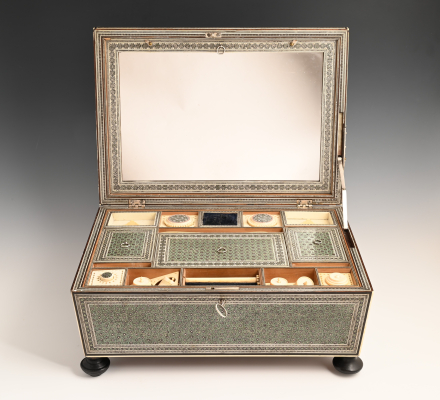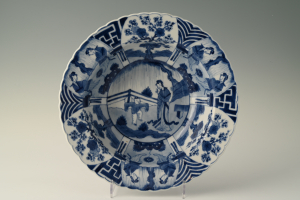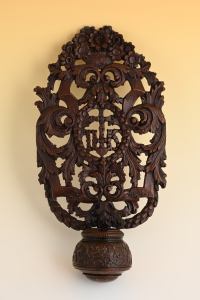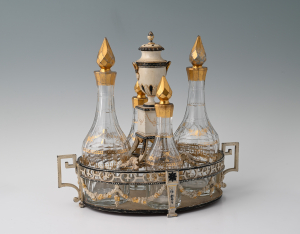An Anglo Indian, Vizagapatam sewing box
- Period:
- 1830-1850
- Dimensions:
- 16 x 33 x 24 cm
- Reference:
- 100-715
€ 1350
- Share
An Anglo Indian, Vizagapatam sewing box
The term "Bombay boxes" was used in the 19th century for all kinds of utility boxes, such as this
sewing box, made in the region around Bombay, now Mumbai, located on the western side of
India.
The characteristic of these items was the inlay work, called sadeli. The box was plated in the form
of a geometric mosaic, consisting of different woods, metals and ivory, with edges of ebony and
ivory.
Since the early 19th century, there were workshops in Bombay where this type of object was
made.
These decorative boxes were exported to England and Western Europe and were also widely
seen at international exhibitions in places such as Vienna, Paris and London.
Literature:
Amin Jaffer, Furniture from British India and Ceylon, a catalogue of the collector in the
Victoria and Albert Museum and the Peabody Essex Museum. London: Victoria and Albert
Museum, 2001. pl. 147, p. 327.
















